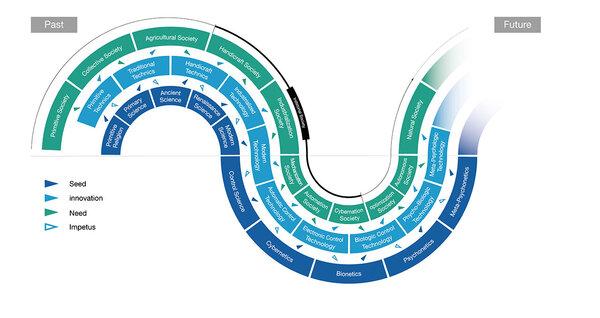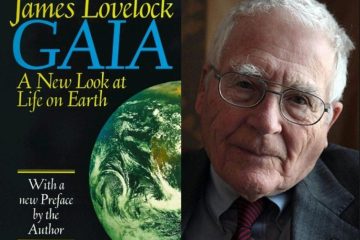Step into the intriguing world of environmental science as we unravel the mind of the legendary James Lovelock through an exclusive interview. Join us on a journey through his wisdom, insights, and visionary thoughts on the planet’s future. Get ready to delve deep into the thoughts of a renowned scientist who has shaped our understanding of Earth’s delicate ecosystems.
Table of Contents
- Unveiling the Mind of a Visionary: James Lovelock’s Insights
- Exploring Gaia Theory: Key Points Revealed in the Interview
- Climate Crisis Solutions: Lovelock’s Recommendations
- Future Forecasts: Lovelock’s Vision for a Sustainable Planet
- Q&A
- Insights and Conclusions

Unveiling the Mind of a Visionary: James Lovelock’s Insights
James Lovelock’s profound insights offer a glimpse into the mind of a true visionary. Through his groundbreaking work, he challenges conventional wisdom and brings to light innovative perspectives that push the boundaries of science and philosophy.
<p>Delving into Lovelock's wisdom reveals a world where interconnectedness reigns supreme, where the intricate web of life on Earth is intricately intertwined with the forces that shape our planet's destiny. His thoughts spark contemplation, inviting us to reevaluate our relationship with the natural world and ponder the profound implications of our actions.</p>
Exploring Gaia Theory: Key Points Revealed in the Interview
In a thought-provoking discussion with the pioneering scientist, James Lovelock, the concept of Gaia Theory unraveled its fascinating layers. Through the lens of Lovelock’s insights, a profound understanding of Earth as a self-regulating organism emerged, challenging traditional views of our planet. Embracing Gaia Theory beckons us to acknowledge the interconnectedness of all life forms and the delicate balance sustaining our biosphere.
Diving deep into the conversation, Lovelock elaborated on key principles at the core of Gaia Theory. From the intricate web of feedback mechanisms that maintain planetary equilibrium to the intricate dance between living organisms and their environment, the profound wisdom encapsulated in Gaia Theory illustrates nature’s remarkable resilience and adaptability. Through this enlightening dialogue, a new perspective on our role as stewards of Earth unfolds, urging us to embrace a harmonious relationship with our planet for the benefit of all beings.
Climate Crisis Solutions: Lovelock’s Recommendations
In a recent interview, renowned scientist James Lovelock shared his insightful recommendations for combating the climate crisis. Lovelock’s perspective offers a unique blend of scientific expertise and visionary thinking, sparking hope for a sustainable future.
**Key Recommendations from James Lovelock:**
- Embrace renewable energy sources such as solar and wind power.
- Implement carbon sequestration techniques to reduce greenhouse gas emissions.
- Focus on fostering biodiversity to strengthen ecosystems.
| Recommendation | Impact |
|---|---|
| Diversify Energy Sources | Reduces dependency on fossil fuels and mitigates climate change. |
| Promote Carbon Sequestration | Helps offset carbon emissions and stabilize the environment. |
| Enhance Biodiversity | Strengthens ecosystems, making them more resilient to environmental changes. |

Future Forecasts: Lovelock’s Vision for a Sustainable Planet
James Lovelock’s vision for a sustainable planet is both insightful and thought-provoking. In a recent interview, Lovelock shared his futuristic forecasts, emphasizing the urgent need for a shift towards sustainability. His ideas resonate with the growing concerns about climate change and the impact of human activities on the environment.
During the interview, Lovelock highlighted key aspects of his vision, including the importance of renewable energy sources, such as solar and wind power. He expressed optimism about advancements in technology that could revolutionize how we generate and consume energy. Additionally, Lovelock discussed the crucial role of biodiversity in maintaining a healthy ecosystem, stressing the need for conservation efforts to preserve our planet’s natural resources. Embracing his vision could lead us towards a future where harmony between humans and the environment is achievable.
| Key Points: | Renewable energy sources |
| Sustainable conservation efforts | |
| Importance of biodiversity |
Q&A
Q: Who is James Lovelock and why is he a notable figure?
A: James Lovelock is a renowned British scientist, environmentalist, and futurist best known for proposing the Gaia hypothesis.
Q: What is the Gaia hypothesis and why is it significant?
A: The Gaia hypothesis, formulated by Lovelock in the 1970s, suggests that the Earth is a self-regulating system where living organisms interact with their inorganic surroundings to maintain conditions suitable for life.
Q: What are some key insights from a recent James Lovelock interview?
A: In a recent interview, James Lovelock discussed the urgent need for global action to address climate change and emphasized the importance of sustainable living practices to protect the planet for future generations.
Q: How has James Lovelock’s work influenced the field of environmental science?
A: James Lovelock’s pioneering work on the Gaia hypothesis has had a profound impact on the field of environmental science, shaping our understanding of Earth as a complex, interconnected system that requires careful stewardship.
Q: What are some practical steps individuals can take to contribute to a more sustainable future, inspired by James Lovelock’s teachings?
A: Inspired by James Lovelock’s teachings, individuals can make a difference by adopting eco-friendly habits such as reducing waste, conserving energy, supporting renewable technologies, and advocating for policies that protect the environment.
Insights and Conclusions
As we conclude this captivating journey through the insights shared in the James Lovelock interview, we are reminded of the profound impact that scientific visionaries can have on our understanding of the world around us. From thought-provoking discussions on climate change to reflections on the interconnectedness of all life forms, Lovelock’s perspectives continue to inspire and challenge us to rethink our relationship with the planet. As we navigate the complexities of a rapidly changing world, may we carry forward the spirit of curiosity and respect for the Earth that Lovelock embodies. Thank you for joining us on this exploration of ideas and possibilities. Stay curious, stay inspired, and continue to seek out knowledge that shapes our future.



0 Comments